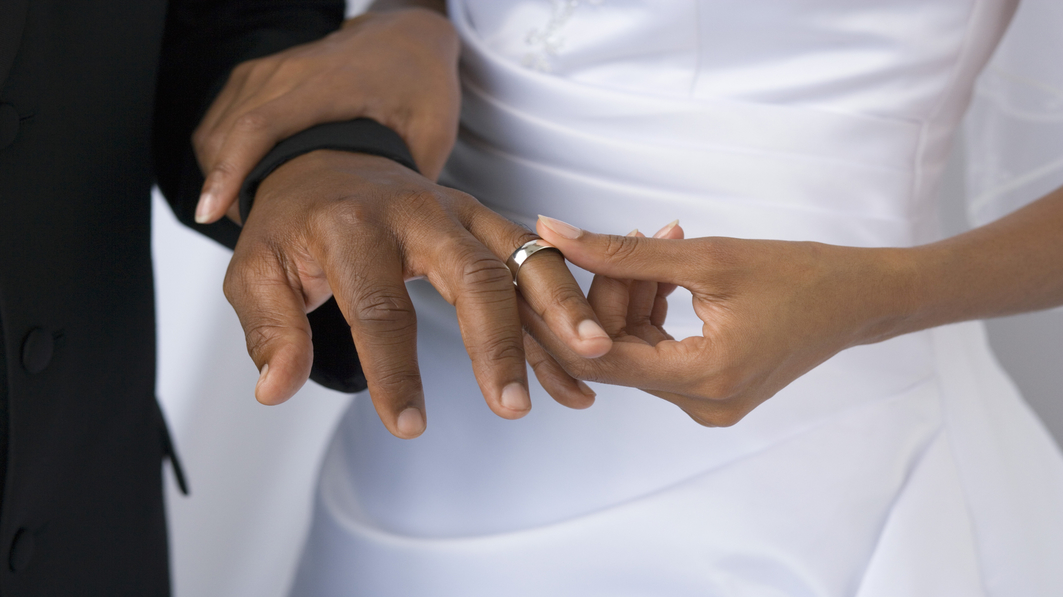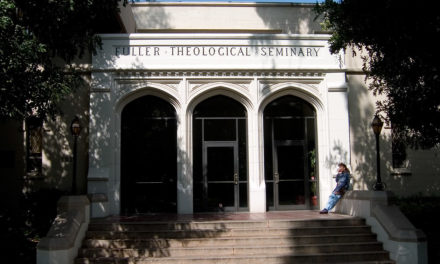- Invitations, flowers, music, the dress, and a photographer.
- The church, a reception venue, food and cake – or maybe cupcakes.
- A limousine, tuxedos, bridesmaids, groomsmen and a DJ.
- A bridal shower, the bachelor party, the rehearsal dinner … and more.
If you’ve attended, planned or participated in a wedding, you recognize the long – and often expensive – list of items involved in putting together a wedding ceremony and reception.
A survey from “The Knot” (not exactly an impartial source, since they’re in the wedding business) found that the national average cost of a wedding in 2016 had gone up to $35,329. That’s enough money to buy a new car, put a down payment on a house or pay off some student loan debt.
So when two families spend that kind of money on a wedding, what are they celebrating? What is the goal of this type of financial investment? And for those of us attending the marriage event, what are we seeing?
What is Marriage?
Marriage has been the source of a lot of discussion in recent decades, and people have all kinds of opinions about what marriage is (or isn’t):
- Marriage brings together two people who love each other.
- Marriage is about being with someone who makes you happy.
- A marriage certificate is just a piece of paper.
- Marriage has changed over the years; it used to be about property rights, now it’s about love.
Even the U.S. Supreme Court stepped into the debate in 2015, opining that marriage was about “certain personal choices central to individual dignity and autonomy, including intimate choices that define personal identity and beliefs.” (Obergefell v Hodges, 2015)
A Christian View of Marriage
Compare those definitions with the way “The Celebration and Blessing of a Marriage,” from The Book of Common Prayer so richly describes marriage:
The bond and covenant of marriage was established by God in creation, and our Lord Jesus Christ adorned this manner of life by his presence and first miracle at a wedding in Cana of Galilee. It signifies to us the mystery of the union between Christ and his Church, and Holy Scripture commends it to be honored among all people.
The union of husband and wife in heart, body, and mind is intended by God for their mutual joy; for the help and comfort given one another in prosperity and adversity; and, when it is God’s will, for the procreation of children and their nurture in the knowledge and love of the Lord.
For Christians, a wedding is so much more than uniting “any two people who love each other”: It’s a solemn, joyful, sacred ceremony, before God and other people, in which a man and woman commit to each other and are joined together for a lifetime.
Notice, too, that the goodness of marriage extends beyond the couple. On a spiritual level, marriage points back to our creation as male and female in God’s image and forward to the union of Christ and His Church. And on a physical level, the ceremony acknowledges that when a couple unites together sexually, often the result is that they have children. Marriage brings about the broadening of their family. Thus Christian marriage benefits all of society, as Christians raise their children to love God and others.
Marriage and Sociologists
Interestingly, as social scientists study marriage across time and many cultures, their definition of marriage concurs more with the Christian viewpoint. Sociologists view marriage as a foundational “social institution.”
The words “social institution” may seem like a dry, academic way to describe what we often think of as a private, romantic relationship, but marriage has deep cultural impact and meaning in every human society. In The Future of Marriage, scholar David Blankenhorn explains that a social institution is “a pattern of rules and structures intended to meet social needs.”David Blankenhorn, The Future of Marriage, (New York: Encounter Books, 2007) p. 60.
Other basic social institutions, found cross-culturally, include the family, government, education, religion and economic systems. Marriage is foundational, as it supports the children and the family, which then support all the other institutions.
Though marital customs, traditions and responsibilities vary by country and culture, Blankenhorn writes that nearly everywhere, “marriage at its core is a woman and a man whose sexual union forms the basis of an important cooperative relationship.”Ibid., p. 96.
This “cooperative relationship” creates a framework for meeting the physical and relational needs of women, men and children in a way that is healthy for and protective of the next generation. Marriage has been so effective that other institutions, such as the government and the church, recognize and support marriage as essential to the well-being of families.
A Foundational Building Block
Marriage is more than “two people who love each other” or “individual autonomy and dignity.” Marriage provides the foundation for the family, and the family is the fundamental building block of all human civilizations. Marriage unites a husband and wife, and, marriage unites parents with any children they have, thus setting the stage for the next generation.
When this foundation is strong, all of society is stronger. Other social institutions, such as the church and government, can then rest on a solid footing. But when the foundation is weakened, all of society experiences the negative effects. Think of a Jenga block-balancing game from which the lower blocks of the tower are removed one at a time: The tower wobbles, totters and finally comes crashing down.
Families are the building blocks essential to the formation of a community, and strong social structure arises from the foundation families provide. As marriages and families crumble, so do communities and all society.
A Higher Purpose for a Wedding
The bride or groom at a wedding may not know and understand all of this, but marriage has thrived cross-culturally because its purpose surpasses the meaning that any one couple, religion or government chooses to give it. A couple entering marriage may not understand all the deeper ramifications, but in their vows they willingly commit their bodies and lives to each other, as well as to an established relational design for men and women.
Marriage is the only human institution that uniquely brings together our private desires with the public need for commitment to the next generation. A society will be only as strong as its foundation. As Christians, we can point to a better way for marriage, lifting it up, celebrating the good of marriage, and supporting married couples.
For more on this topic:
- The Family Project, a 12-session DVD experience for couples or small groups
- Marriage Done Right: One Man, One Woman, book by Jim Daly
- What is Marriage? Man and Woman: A Defense, book by Sherif Girgis, Ryan T. Anderson and Robert P. George






